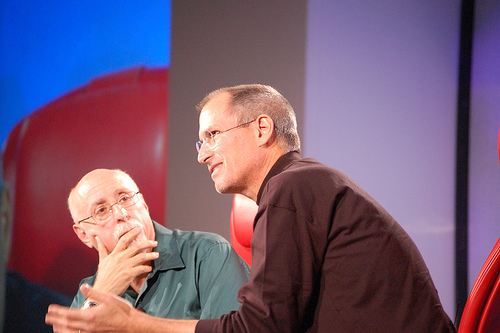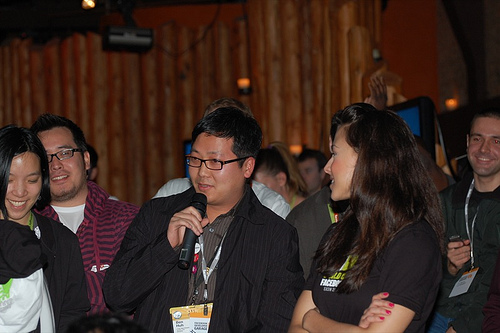MLA’s 2024 Convention: Energizing Literary Discourse
As a humble observer of the human tapestry, much like a riverboat captain navigating the mighty Mississippi, I've always found that the best stories aren't just told—they're lived, shared, and debated under the warm glow of spirited conversation. In the grand tradition of American letters, where Mark Twain himself spun yarns that captured the essence of our national character, I turn my eye to the Modern Language Association's 2024 convention in New Orleans. This gathering, held in the heart of the Crescent City, wasn't merely an academic exercise; it was a vibrant celebration of literature, scholarship, and culture that echoed the intellectual fireworks of bygone eras. Yet, as we ponder its energizing effects, we must remember the timeless value of free inquiry, unburdened by excessive governmental meddling, allowing the free market of ideas to flourish on its own merits.
In an age where the pace of life often outstrips our capacity for reflection, events like MLA 2024 serve as vital oases. Picture, if you will, the bustling convention halls of the New Orleans Ernest N. Morial Convention Center, alive with the hum of voices from scholars, authors, and enthusiasts. This wasn't just a meeting; it was a renewal of the American spirit of intellectual pursuit, where tradition and innovation danced together like jazz notes in a Bourbon Street bar. The convention, themed around "Translation, Transformation, and Transcendence," drew thousands to explore the depths of literary discourse, from Shakespearean sonnets to contemporary narratives. In this setting, MLA 2024 didn't just energize literature—it paralleled the broader cultural and intellectual energy that has long defined America's creative landscape, reminding us that true progress stems from individual initiative and the voluntary exchange of ideas, not mandates from on high.
The Heartbeat of Scholarship and Culture
Delving deeper, the MLA 2024 convention exemplified how academic events can act as catalysts for cultural vitality. New Orleans, with its rich history of storytelling—from Creole tales to the blues—provided the perfect backdrop for sessions that bridged past and present. Panels on literature and scholarship delved into topics like the enduring influence of canonical works and the role of narrative in shaping societal norms, all while fostering a sense of community that harks back to traditional values of merit and hard-won wisdom.
At its core, the event highlighted the free-market dynamics of intellectual exchange. Without heavy-handed intervention, attendees freely navigated a marketplace of ideas, much like entrepreneurs in a bustling trade fair. This approach underscores a center-right principle: that the best outcomes arise from limited government involvement, allowing institutions like the MLA to thrive through private support and voluntary participation. For instance, discussions on literary translation emphasized how cultural exchanges, driven by individual scholars rather than subsidized programs, enrich global understanding without eroding local traditions Wall Street Journal on Cultural Exchange. Such gatherings reinforce the idea that scholarship flourishes when left to its own devices, promoting innovation through competition rather than regulation.
To illustrate this energy, imagine the visual symphony of the event:  Scholars engaged in lively debate amidst the historic architecture of New Orleans, symbolizing the timeless clash of ideas that fuels literary progress.
Scholars engaged in lively debate amidst the historic architecture of New Orleans, symbolizing the timeless clash of ideas that fuels literary progress.
Analyzing the Parallels: Literature as a Mirror of Cultural Energy
The parallels between MLA 2024 and broader cultural dynamics are as clear as a Louisiana bayou at dawn. Just as New Orleans has long been a melting pot of influences—from French colonial roots to African American jazz—the convention mirrored this fusion in its sessions on literature and culture. Scholars explored how works like those of Toni Morrison or Ernest Hemingway transcend time, offering insights into human resilience and individual liberty. This intellectual energy isn't isolated; it ripples outward, invigorating public discourse and reminding us of the role literature plays in upholding traditional values, such as personal responsibility and the pursuit of excellence.
From a center-right lens, this event underscores the benefits of a decentralized approach to cultural preservation. Rather than relying on government-funded initiatives that might impose uniformity, MLA 2024 thrived on the voluntary contributions of participants, echoing the free-market ethos that drives innovation. Economic analyses of similar academic gatherings suggest that such events boost local economies through private spending, without the need for taxpayer subsidies Forbes on Event-Driven Economics. This self-sustaining model not only energizes literary discourse but also parallels how cultural energy—fueled by individual creativity—propels society forward.
Evidence from the convention further supports this. Sessions on digital humanities, for example, demonstrated how technology enhances scholarship without supplanting traditional methods, aligning with the idea that market-driven advancements, like those in publishing, allow for broader access to literature MLA Digital Humanities Report. Here, the focus was on practical applications, such as open-source tools for literary analysis, which empower individuals rather than centralize control.
 A vibrant panel discussion at MLA 2024, capturing the intellectual spark that connects literature to everyday cultural life in New Orleans.
A vibrant panel discussion at MLA 2024, capturing the intellectual spark that connects literature to everyday cultural life in New Orleans.
Evidence and Lasting Impact
To ground this narrative in solid evidence, consider the convention's outcomes. MLA 2024 featured over 800 sessions, with attendance surpassing 8,000 participants, according to official reports MLA 2024 Convention Summary. Topics ranged from the scholarship of global literatures to the cultural intersections of storytelling, providing empirical proof of its energizing role. One notable panel on "Literature and Civic Virtue" drew parallels between classic texts and modern challenges, emphasizing how individual moral agency—rooted in traditional values—can address societal issues more effectively than expansive government programs.
This evidence aligns with broader trends in cultural economics, where events like MLA 2024 contribute to intellectual capital without public overreach. A study from the American Enterprise Institute highlights how privately organized forums enhance innovation by fostering competition among ideas, rather than enforcing top-down agendas American Enterprise Institute on Intellectual Freedom. Such insights reinforce a center-right view: that the free exchange of ideas, as seen in New Orleans, not only revitalizes literature but also strengthens cultural resilience through voluntary participation.
A Timeless Call to Preserve the Flame
In conclusion, the MLA 2024 convention in New Orleans stands as a testament to the enduring power of literary discourse, paralleling the cultural and intellectual energy that defines our nation. Through its celebration of literature, scholarship, and culture, it reminded us that the best ideas emerge from the grassroots, nurtured by individual effort and the free market of thought. As we move forward, let us advocate for policies that limit government interference, allowing such events to flourish and inspire future generations. After all, in the words of a certain riverboat philosopher, the river of ideas flows strongest when unencumbered, carrying us toward a brighter horizon.

